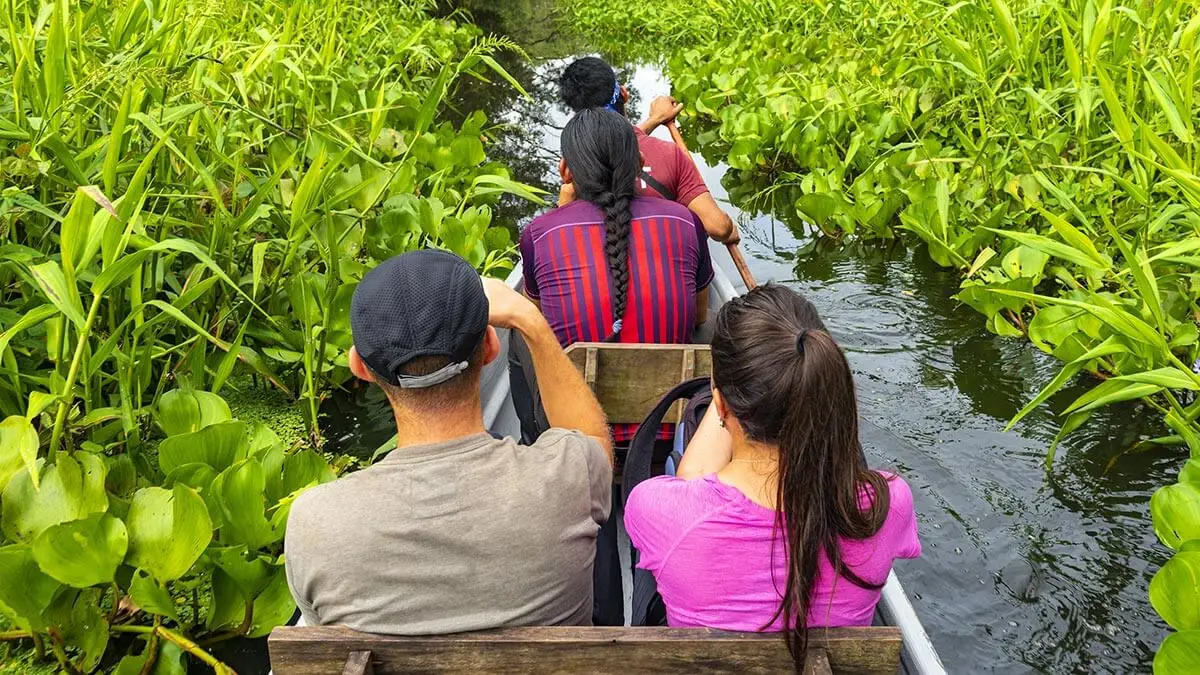Responsible Travel Habits for a Better Planet

The world is interconnected, and with every journey we embark upon, we leave an imprint. Practicing responsible travel habits ensures that these imprints contribute positively rather than deplete the natural and cultural wealth we encounter. Conscious travelers today recognize that their choices—whether it’s selecting eco-friendly accommodations, supporting local artisans, or reducing waste—are far more than personal conveniences. They represent a collective movement toward sustainability. To understand sustainable living on a broader scale, visit eco-friendly lifestyle practices that harmonize daily choices with global well-being.
Understanding the Impact of Modern Travel
Global mobility has skyrocketed in recent decades. Airplanes, cruise ships, and sprawling tourist resorts make the world accessible in ways unimaginable to earlier generations. Yet this accessibility comes with environmental and social costs. Carbon emissions from aviation, overtourism that strains fragile ecosystems, and cultural homogenization threaten the very treasures travelers seek to explore.
Every choice—big or small—determines whether travel nurtures or undermines the planet. Awareness is the foundation. Only by acknowledging the consequences of movement can we aspire to travel in harmony with the Earth.
Eco-Friendly Transportation Choices
Choosing how to move from one place to another defines much of a trip’s environmental footprint. Trains, buses, and carpools significantly reduce emissions compared to solo flights or private vehicles. In regions where cycling is feasible, renting bicycles or electric scooters combines leisure with sustainability.
Short-haul flights, though convenient, contribute disproportionately to carbon pollution. Alternatives such as night trains not only cut emissions but also enrich the journey with unique experiences. When flying remains the only option, carbon offsetting programs can help balance environmental impact, though mindful travelers also advocate for reducing flight frequency altogether.
Green Accommodations and Eco-Lodges
Where we stay carries equal weight. Eco-lodges, green-certified hotels, and community-based homestays minimize environmental disruption while maximizing cultural immersion. Solar energy systems, water-saving facilities, and zero-waste operations are hallmarks of genuinely sustainable accommodations.
Supporting locally owned establishments channels income directly into communities. This financial flow strengthens local economies, preserves cultural identity, and ensures that tourism benefits rather than exploits. Beyond economics, it fosters meaningful connections between visitors and hosts, transforming travel into an exchange rather than a transaction.
Reducing Waste on the Road
The convenience of single-use plastics often clashes with the principles of conscious travel. Reusable water bottles, cutlery, and cloth bags drastically cut down unnecessary waste. In many destinations, access to filtered water stations makes refillable bottles practical and eco-friendly.
Proper waste disposal is equally vital. Sorting recyclables, composting where possible, and avoiding products with excessive packaging align small actions with broader planetary stewardship. The principle of “leave no trace” extends beyond wilderness hikes to every urban exploration, ensuring that places remain unspoiled for future visitors.
Supporting Local Communities and Economies
Sustainable tourism is not only ecological—it is social. Engaging with local markets, dining at family-owned eateries, and purchasing from regional artisans sustains livelihoods. This approach resists the homogenization of global consumer culture, instead celebrating the diversity of traditions and crafts.
Volunteering opportunities, when approached with respect and humility, further contribute to communities. Programs that prioritize collaboration over exploitation create mutual benefit, bridging the gap between guest and host.
Mindful Cultural Engagement
Cultural sensitivity transforms travel into an enriching exchange. Respecting dress codes, learning basic phrases in local languages, and understanding cultural rituals signal honor for traditions. Travelers who take the time to study local history and customs engage more deeply, avoiding the pitfalls of cultural appropriation or misrepresentation.
Photography deserves particular mindfulness. Asking for permission before taking portraits upholds dignity and avoids the commodification of people. Travel becomes less about consumption and more about connection when approached through empathy and humility.
Conservation of Natural Habitats
Natural landscapes are fragile sanctuaries. Trekking responsibly means sticking to marked paths, minimizing disturbance to wildlife, and avoiding the temptation to remove plants or rocks as souvenirs. National parks and marine sanctuaries rely on visitor cooperation to preserve biodiversity.Eco-tour operators that prioritize conservation educate travelers while funding preservation initiatives. Safaris, snorkeling trips, and hiking tours led by ethical guides cultivate both wonder and responsibility. In this way, travel inspires reverence for the natural world while actively protecting it.
The Role of Slow Travel
Fast itineraries often prioritize quantity over quality. Slow travel counters this tendency by encouraging deeper immersion in fewer destinations. Staying longer in one place reduces transport emissions, supports local economies consistently, and fosters authentic relationships.It also allows travelers to experience rhythms beyond tourist highlights—local markets at dawn, neighborhood festivals, or casual conversations in community cafés. The shift from ticking boxes to building bonds embodies the very essence of sustainable travel.
Digital Minimalism and Conscious Connectivity
Technology, while facilitating convenience, can detract from present experiences. Constantly chasing Wi-Fi or curating social media updates creates a layer of detachment from genuine encounters. Practicing digital minimalism during travel promotes immersion, gratitude, and meaningful connections.Using digital tools judiciously—like e-tickets instead of printed versions or map apps for efficient navigation—aligns technology with sustainability rather than distraction. Conscious connectivity ensures that digital habits enhance rather than diminish journeys.
Food Choices While Traveling
Culinary experiences shape travel memories, yet food choices carry ethical and environmental consequences. Choosing plant-based meals, avoiding overfished species, and dining at locally owned establishments reduce Farm-to-table experiences and cooking classes with locals highlight regional agriculture, traditions, and sustainability. Supporting seasonal produce not only benefits health but also reduces the carbon emissions tied to long-distance food transport.
Travel Gear with a Purpose
Responsible journeys begin with preparation. Packing light reduces fuel consumption on flights and simplifies mobility. Sustainable gear—such as clothing made from organic fabrics, biodegradable toiletries, and solar-powered chargers—minimizes environmental disruption.Durable, multi-functional gear eliminates the need for excessive purchases and reduces waste. Investing in high-quality items upfront prevents frequent replacements, aligning consumption with responsibility.
Volunteering and Ethical Tourism Programs
For those seeking deeper engagement, volunteer tourism provides avenues to contribute positively. Ethical programs prioritize collaboration with local communities rather than imposing external solutions. From wildlife conservation to teaching initiatives, these efforts transform travel into service.Scrutiny is crucial, however, as not all volunteer opportunities operate ethically. Programs must be vetted to ensure genuine community benefit rather than exploitation. When thoughtfully approached, volunteerism can enrich both visitors and hosts alike.
The Economics of Sustainable Tourism
Tourism represents one of the largest global industries. Its growth carries both potential and peril. Sustainable models emphasize equitable distribution of revenue, ensuring that profits are reinvested into local economies and environmental protection.Travel taxes and conservation fees, when transparently managed, finance infrastructure, preservation, and education. This reinvestment strengthens resilience against overdependence and ecological degradation. For further insights into systemic impact, consider exploring sustainable travel economies that illuminate the balance between profit and preservation.
The Rise of Eco-Certifications
Travelers increasingly seek validation of a business’s sustainability claims. Eco-certifications, ranging from hotel ratings to tour operator seals, provide benchmarks for responsible operations. These certifications cover areas like energy efficiency, waste reduction, and community engagement.However, travelers must remain vigilant. Greenwashing—false or exaggerated claims of sustainability—can mislead consumers. Cross-referencing certifications with independent reviews ensures authenticity and transparency.
Health and Wellness Integration
Responsible travel intertwines with personal well-being. Practices like yoga retreats, meditation sessions, and spa treatments rooted in local traditions combine rejuvenation with cultural appreciation.Wellness tourism, when guided by authenticity, benefits both the traveler and the host community. Local healers, herbal remedies, and nature-based therapies embody holistic approaches that support sustainable, respectful exchanges.
The Importance of Education in Travel
Educational initiatives amplify the impact of responsible journeys. Workshops, guided tours, and community-led storytelling sessions immerse travelers in deeper understanding. Awareness nurtures empathy, fostering advocates for sustainability long after the trip ends.Families traveling with children particularly benefit from educational components. By exposing younger generations to principles of stewardship, they instill values that endure across lifetimes.
Shaping Future Generations of Travelers
Children exposed to conscious travel grow into guardians of the Earth. Family trips designed around sustainability instill habits that ripple into adulthood. Activities like wildlife conservation camps or cultural immersion programs make learning experiential and lasting.Educators and policymakers can further promote sustainable travel through school curricula and youth programs. Future generations, inspired early, ensure continuity of responsibility.
Policy and Governmental Role
Governments wield significant influence in shaping travel. Policies regulating emissions, mandating conservation fees, and protecting heritage sites set the tone for industries. By incentivizing sustainable practices, authorities ensure long-term viability of tourism economies.Public-private collaborations further magnify impact. Partnerships between governments, NGOs, and businesses establish systemic resilience against exploitation and degradation.
Reimagining Luxury Travel
Luxury no longer equates to excess. A new definition of luxury emphasizes exclusivity, authenticity, and responsibility. Private eco-resorts, carbon-neutral yachts, and curated cultural experiences cater to discerning travelers seeking impact alongside indulgence.This shift demonstrates that high-end tourism can coexist with sustainability. Wealth and responsibility, once thought at odds, increasingly intertwine in modern travel paradigms.
Global Collaboration for Sustainable Journeys
Sustainable travel requires collective effort. International agreements, cross-border conservation initiatives, and collaborative research strengthen resilience against global challenges.Travelers, businesses, and governments all play indispensable roles. Only through unity can tourism sustain itself without depleting the very wonders it celebrates. For future-oriented strategies, examine global eco-tourism alliances that emphasize cooperative solutions to planetary challenges.





